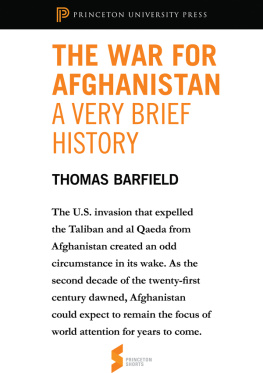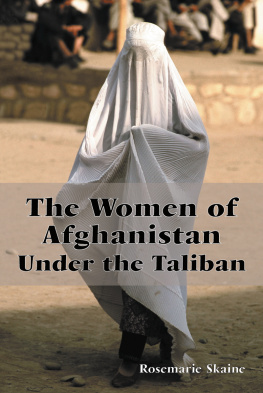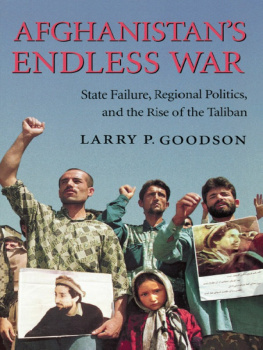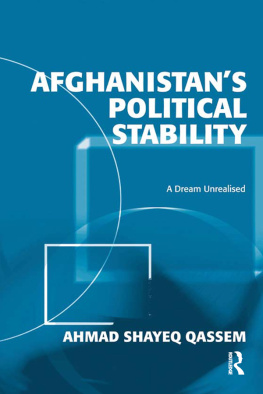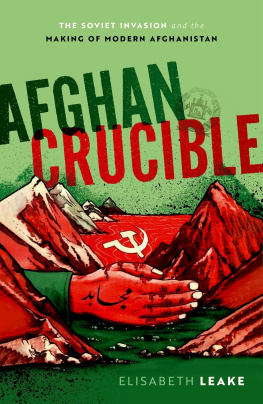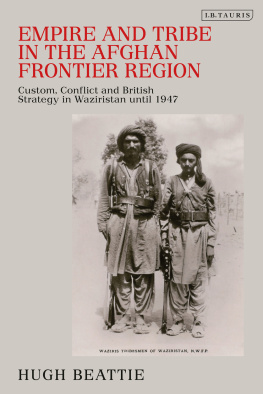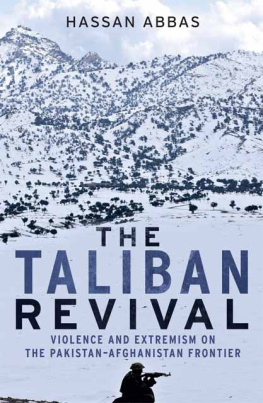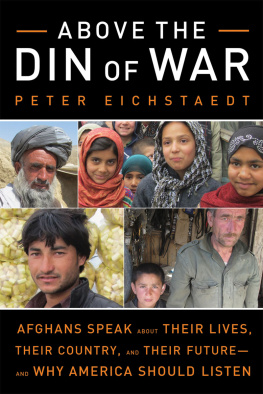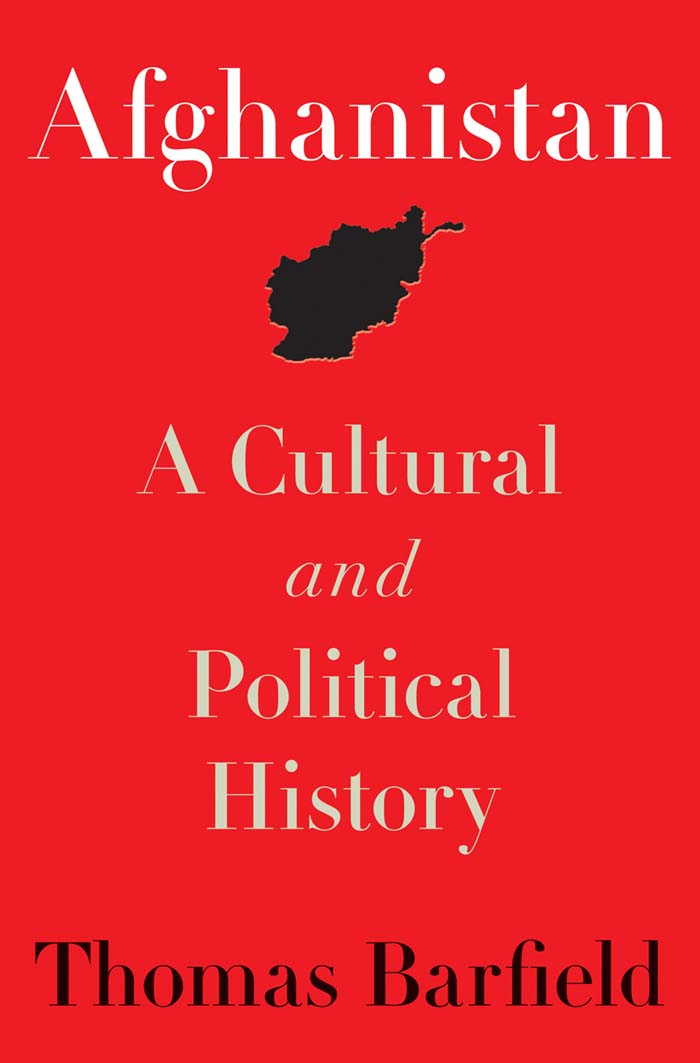Afghanistan
P RINCETON S TUDIES IN M USLIM P OLITICS
Dale F. Eickelman and Augustus Richard Norton, Editors
Diane Singerman, Avenues of Participation: Family, Politics, and Networks in Urban Quarters of Cairo
Tone Bringa, Being Muslim the Bosnian Way: Identity and Community in a Central Bosnian Village
Dale F. Eickelman and James Piscatori, Muslim Politics
Bruce B. Lawrence, Shattering the Myth: Islam beyond Violence
Ziba Mir-Hosseini, Islam and Gender: The Religious Debate in Contemporary Iran
Robert W. Hefner, Civil Islam: Muslims and Democratization in Indonesia
Muhammad Qasim Zaman, The Ulama in Contemporary Islam: Custodians of Change
Michael G. Peletz, Islamic Modern: Religious Courts and Cultural Politics in Malaysia
Oskar Verkaaik, Migrants and Militants: Fun and Urban Violence in Pakistan
Laetitia Bucaille, Growing Up Palestinian: Israeli Occupation and the Intifada Generation
Robert W. Hefner, ed., Remaking Muslim Politics: Pluralism, Contestation, Democratization
Lara Deeb, An Enchanted Modern: Gender and Public Piety in Shii Lebanon
Roxanne L. Euben, Journeys to the Other Shore: Muslim and Western Travelers in Search of Knowledge
Robert W. Hefner and Muhammad Qasim Zaman, eds., Schooling Islam: The Culture and Politics of Modern Muslim Education
Loren D. Lybarger, Identity and Religion in Palestine: The Struggle between Islamism and Secularism in the Occupied Territories
Bruce K. Rutherford, Egypt after Mubarak: Liberalism, Islam, and Democracy in the Arab World
Emile Nakhleh, A Necessary Engagement: Reinventing Americas Relations with the Muslim World
Roxanne L. Euben and Muhammad Qasim Zaman, eds., Princeton Readings in Islamist Thought: Texts and Contexts from al-Banna to bin Laden
Irfan Ahmad, Islamism and Democracy in India: The Transformation of Jamaat-e-Islami
Kristen Ghodsee, Muslim Lives in Eastern Europe: Gender, Ethnicity, and the Transformation of Islam in Postsocialist Bulgaria
John R. Bowen, Can Islam Be French? Pluralism and Pragmatism in a Secularist State
Thomas Barfield, Afghanistan: A Cultural and Political History
Afghanistan
A CULTURAL AND POLITICAL HISTORY
Thomas Barfield
PRINCETON UNIVERSITY PRESS
PRINCETON & OXFORD
Copyright 2010 by Princeton University Press
Published by Princeton University Press, 41 William Street, Princeton,
New Jersey 08540
In the United Kingdom: Princeton University Press, 6 Oxford Street,
Woodstock, Oxfordshire OX20 1TW
press.princeton.edu
All Rights Reserved
Library of Congress Cataloging-in-Publication Data
Barfield, Thomas J. (Thomas Jefferson), 1950
Afghanistan : a cultural and political history / Thomas Barfield.
p. cm. (Princeton studies in Muslim politics)
Includes bibliographical references and index.
ISBN 978-0-691-14568-6 (hardcover : alk. paper)
1. AfghanistanPolitics and government. 2. AfghanistanHistory. 3. AfghanistanSocial conditions. 4. Islam and politicsAfghanistanHistory. I. Title.
DS357.5.B37 2010
958.1dc22 2010002082
British Library Cataloging-in-Publication Data is available
This book has been composed in Adobe Garamond
Printed on acid-free paper.
Printed in the United States of America
10 9 8 7 6 5 4 3 2 1
CONTENTS
C HAPTER O NE
People and Places
C HAPTER T WO
Conquering and Ruling Premodern Afghanistan
C HAPTER T HREE
Anglo-Afghan Wars and State Building in Afghanistan
C HAPTER F OUR
Afghanistan in the Twentieth Century: State and Society in Conflict
C HAPTER F IVE
Afghanistan Enters the Twenty-first Century
C HAPTER S IX
Some Conclusions
ILLUSTRATIONS
F IGURES
M APS
PREFACE
I first entered Afghanistan traveling overland as a young student almost forty years ago. Like many travelers, I was awed by the countrys scenery and fascinated by its people. Unlike most others I returned to learn more. That journey never ended but has often been detoured. It first encompassed years of ethnographic fieldwork among nomads in northern Afghanistan in the mid-1970s. I had a unique opportunity to experience life as it is actually lived in rural Afghanistansomething that seemed so easy to come by then and is so difficult now. It was a time of peace and security, when foreigners could travel the breadth of the country alone, armed only with a bit of common sense to ensure their safety. Political changes in Kabul rarely had any serious impact outside the capital. I was in Kabul the day that Zahir Shah (r. 193373) was overthrown in 1973. The biggest change was how quickly his pictures disappeared and how soon they were replaced by those of his cousin Daud.
This calm was deceptive, however, because others seeking power in Kabul, Communists and Islamists, sought to transform the country in radically different directions. The leftists had the first go in 1978 and provoked an insurgency, which the Soviet invasion in late 1979 was designed to quell. During the ten-year Soviet occupation I observed the country from the outside, informed by occasional trips to Pakistan to work with Afghan refugees. The Russian withdrawal in 1989 proved to be a false dawn of optimism. None of the great powers was willing to provide the necessary political and economic investment to forge an agreement between the Pakistan-based mujahideen (holy warriors) parties in Peshawar and the Soviet-backed regime in Kabul. The Russians wanted nothing more to do with the country, and the Americans lost all interest in it when the Soviet Union collapsed in 1991. This opened a ten-year civil war in which the Islamist leaders became dominate, and proved they could be every bit as ruthless and power hungry as the Communists they replaced. The nadir of this period produced the Taliban in the late 1990s.
From my safe perch in the United States I continued to follow the few reports that came out of Afghanistan, but was rarely asked about the country or its people. Critics of the university tenure system undoubtedly put me among those useless faculty who purveyed esoteric and irrelevant knowledge to the young without fear of termination. Wise policymakers had already determined that such remote places and people could be safely excluded from Americas New World Order.
On September 11, 2001, Afghanistan suddenly became relevant. Now people wanted to know why we did not have more information on the country and its people. In 2002, I returned to northern Afghanistan after a twenty-five-year absence. The nomads I had lived with had survived and even prospered. (Regardless of ideology, everyone was still in the market for the mutton that the nomads produced.) But the countrys infrastructure was destroyed and its security remained fragile. I began publishing more extensively, particularly on issues of customary law. In collaboration with other scholars, in 2003 I helped establish the American Institute for Afghanistan Studies. I was asked to give many scholarly presentations and occasionally advise policymakers. It proved difficult to explain Afghanistan and its politics to those who took an interest in it only after 2001. Not that it mattered much. Tired clichs passed as insights, and few policymakers thought of consulting any Afghans who could not speak English. There was, in any event, little appetite for real engagement in Afghanistan after 2002 because the Bush administration was preoccupied with Iraq.


